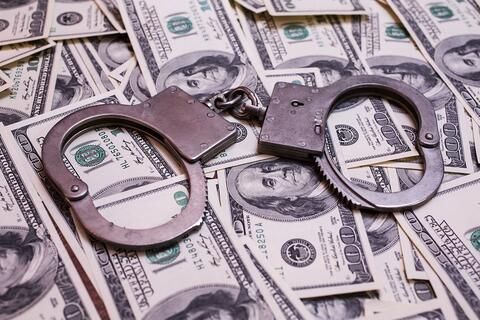NEWARK, N.J. – An Essex County, New Jersey, man was charged today for his role in a multi-million dollar money laundering conspiracy and for using a stolen identity in furtherance of the scheme, U.S. Attorney Craig Carpenito announced.
Federal officials say Mr. Edwin Deleon-Batista, 36, of Newark, is charged by complaint with one count of conspiracy to launder drug proceeds and one count of identity fraud.
Deleon-Batista is scheduled to make his initial appearance Thursday afternoon before U.S. Magistrate Judge Leda Dunn Wettre in Newark federal court.
According to documents filed in this case and statements made in court:
Over an extended period, Deleon-Batista conspired with other individuals with close ties to drug trafficking organizations to pick up millions of dollars in cash drug proceeds in New Jersey and New York and launder the money by using it to purchase cashier’s checks at local bank branches.
The checks were made payable to individuals and companies specified by conspirators with close ties to the drug trafficking organizations.
Converting the drug proceeds to cashier’s checks was Deleon-Batista’s way to hide the nature and source of the illegal funds and avoid scrutiny by law enforcement and banks.
Between March 2018 and March 2019, Deleon-Batista converted over $13 million in United States currency into cashier’s checks at banks in New Jersey, New York, and elsewhere. Deleon-Batista received a fee of approximately 1 percent of the amount he laundered.
Deleon-Batista was previously arrested on federal money laundering charges in New York in April 2019. Soon after his arrest, Deleon-Batista began using a stolen identity in order to continue his money laundering activities.
Specifically, Deleon-Batista illegally acquired a Florida driver’s license with his own photograph but with someone else’s name and address.
He then used this fraudulent license to open several bank accounts, which he then used as a means to convert over $10 million in additional cash drug proceeds into cashier’s checks at bank branches in New Jersey, New York, and Florida over a five-month period.
The charge of money laundering carries a maximum penalty of 20 years in prison and a fine of $500,000 or twice the amount involved in the offense, whichever is greater.
The charge of identity fraud carries a maximum prison sentence of 15 years and a $250,000 fine
